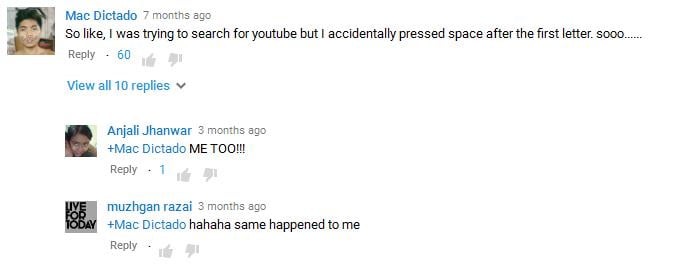When news broke last month that Google was to launch a new holding company called ‘Alphabet’, it got a lot of people very excited. Perhaps this is partly because everything the search engine giant does is widely seen as something that’s going to revolutionise the way we live, but what also pricked many people’s conscience was that here was arguably the most powerful company in today’s world giving a new meaning to a generic, everyday word.
Stories emerged of people buying up alphabet-themed URLs, and a Twitter user with the handle @alphabet became the subject of media attention, as well as a barrage of tweets. Does this really mean anything though? Is it realistic to think that having a similar name or URL to a famous product is genuinely going to result in more attention and website traffic? For a start, when was the last time you actually typed a full URL, with the domain extension, into your address bar?
Not long ago it could actually be in a company’s interest to misspell something and therefore rank more highly. Think of common spelling errors like ‘wierd’ and ‘seperate’. A few years ago, if you typed these words into Google, it would search for sites that contained the same misspelling you had come up with. Now, Google has recognised that, as internet users, we’re sloppy and lazy and it has started to do a lot of the tidying up for us. Today, if we search for ‘wierd’, Google will assume we meant ‘weird’ and find results accordingly. It takes real commitment to poor spelling to successfully search for a typo these days.
One thing that truly sums up how half-hearted Googlers have become is the relative success rates of one-letter searches. Try Googling simply the letters ‘F’ and ‘Y’. Are you surprised that Facebook and YouTube are the number one results respectively? Similarly, ‘B’ brings up BBC iPlayer as its second result, while eBay and Twitter will be in the top three results if you Google just the first letter of their names.
Google hasn’t always used this much guesswork. A few years ago, the top result for ‘Y’ was this video, by the Swedish electronic music project iamamiwhoami. I know this because I, like YouTube user Mac Dictado, discovered it quite by mistake.
Spearheaded by singer and performer Jonna Lee and producer Claes Björklund, iamamiwhoami is an excellent example of an online concept that’s thrived, in part, as a result of attracting lazy or clumsy Googlers. In August 2010, the channel posted the video ‘y’. It’s one of a number of artsy, cryptic videos you can view on the channel, with the older ones being particularly bizarre and usually involving Lee running through forests, diving into murky Scandinavian waters and cooing these otherworldly, Björk-esque songs. Thanks to their ‘Googleability’, and the intrigue that surrounded them (the identity of their creators was a mystery for some time), many of these videos have gone viral, with ‘y’ having been viewed more than 17 million times.
In a sign of how much search engine optimisation has changed over the last three months, this video is now nowhere to be seen among the top 100 results for a search for ‘Y’, and searching for ‘Y’ via YouTube doesn’t exactly make it jump out at you either. By making YouTube the top result for ‘Y’, Google has learned that most people who search for the letter are not looking for a niche Swedish audiovisual art project (sadly), but instead are looking for the largest video streaming site on the net. It’s therefore become less easy to pique attention simply through a search term.
As it happens, I really like iamamiwhoami’s work and I’m glad I stumbled upon it by accident, but it doesn’t change the fact that it wasn’t what I was looking for. In essence, Google has become less of a jumble sale and more of a convenience store, where the shop assistants have a good idea of what we want as soon as we come through the door. In terms of maximising our time spent on the web and finding the optimum results this is a positive thing but, personally, I hope the internet never altogether loses that ‘bargain bin’ charm of finding something you weren’t looking for and being delighted with it.
In conclusion, there are many ways that businesses can benefit from the all-round laziness of web users in 2015, but they will fail to do so if they take a lazy approach themselves. Perhaps ‘immediacy’ is a better term than ‘laziness’, and companies using online marketing should always keep a close eye on what people are talking about at that particular time and, of course, what their competitors are saying. With Twitter and Facebook always happy to show you their trending topics, there’s no reason not to dive into the hottest topics of discussion and make yourself heard within a popular field. That way, the spontaneous web user may find you and, just like I am with iamamiwhoami, be glad that they did.
- How to find a circular reference on Excel - May 23, 2024
- Five life skills learned from internet marketing - January 3, 2024
- How artificial intelligence can (and can’t) help you write content - September 29, 2023




Vivien Richardson liked this on Facebook.